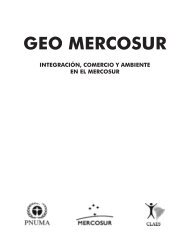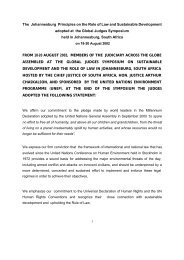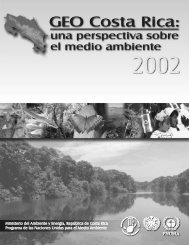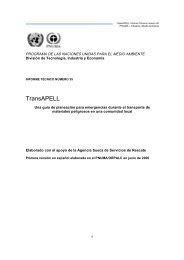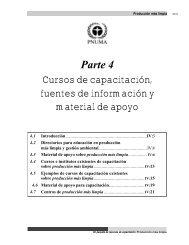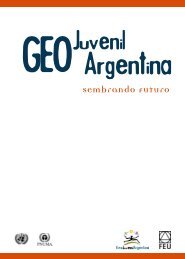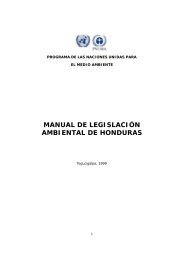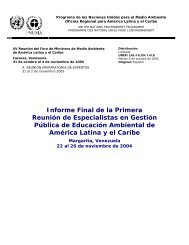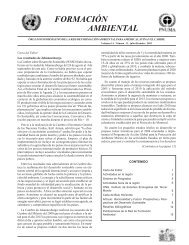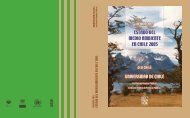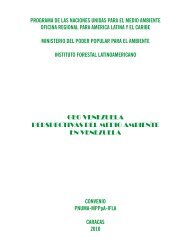GEO Haiti 2010
GEO Haiti 2010
GEO Haiti 2010
Create successful ePaper yourself
Turn your PDF publications into a flip-book with our unique Google optimized e-Paper software.
State of the Environment Report <strong>2010</strong><br />
enhance effectiveness and prevent duplication of<br />
activities.<br />
6. Establish a group of environmental negotiators<br />
in charge of dialogue with the international<br />
community on environmental restoration and<br />
protective programmes<br />
Efforts to mobilise the international community<br />
in the struggle to save the environment must be<br />
carried out in a professional manner. Negotiations<br />
must therefore be led by experts in environmental<br />
matters.<br />
There is therefore a clear need to establish a group<br />
of negotiators specialised on environmental issues.<br />
7. Undertake an extensive training-programme<br />
of specialists on the main environment-related<br />
fields<br />
<strong>Haiti</strong> has a respectable pool of environmentalmanagement<br />
specialists. It would be useful to<br />
increase their number as well as to train other<br />
professionals in specific areas.<br />
The availability of this “critical mass” of specialists<br />
would facilitate the development of environmentalmanagement<br />
systems specific to the country,<br />
which would enhance the effectiveness of betteradapted<br />
initiatives.<br />
8. Promote scientific research and create a<br />
database on the <strong>Haiti</strong>an environment<br />
Contrary to popular belief, not many studies<br />
have been carried out until now on the <strong>Haiti</strong>an<br />
environment. Data on various aspects of the<br />
environment remain inexistent. It is inconceivable<br />
that effective environmental management be<br />
carried out without a profound knowledge of the<br />
environment situation.<br />
It is therefore fundamental to carry out scientific<br />
studies in specific areas, those where there is a<br />
need for essential data and information.<br />
9. Implement the Environmental Action Plan<br />
“The Environmental Action Plan” (PAE), drafted<br />
some years ago, has been little applied. Yet,<br />
the document could be useful in improving<br />
environmental management if its propositions<br />
and 10 programmes were adopted.<br />
The PAE advocates:<br />
• National capacity-building on environmental<br />
management;<br />
• A sustainable development<br />
energy programme;<br />
• Public education on the environment and<br />
sustainable development;<br />
• Conservation and the sustainable-utilization of<br />
biodiversity;<br />
• Management of strategic watersheds;<br />
• Integrated management of coastal and marine<br />
zones;<br />
• Environmental sanitization;<br />
• Management of natural disasters;<br />
• Sustainable-development activities support;<br />
• Effective management of mines and quarries.<br />
Who will coordinate these actions?<br />
Launched at the end of 2008 by the Ministry<br />
of Environment, The National Environment and<br />
Vulnerability Observatory (ONEV) 70 , would be<br />
the most appropriate entity to coordinate the<br />
above-mentioned actions. It would have to be<br />
permanent and equipped with the necessary<br />
means to carry out its mandate effectively and<br />
efficiently, and also need to forge partnerships<br />
with other specialised public and private<br />
stakeholders in the environmental sector. Some<br />
possibilities would be: CNIGS, MARNDR, MICT,<br />
TPTC and other environment-related national<br />
and international organisations.<br />
169<br />
70<br />
Le Nouvelliste, 2008.



